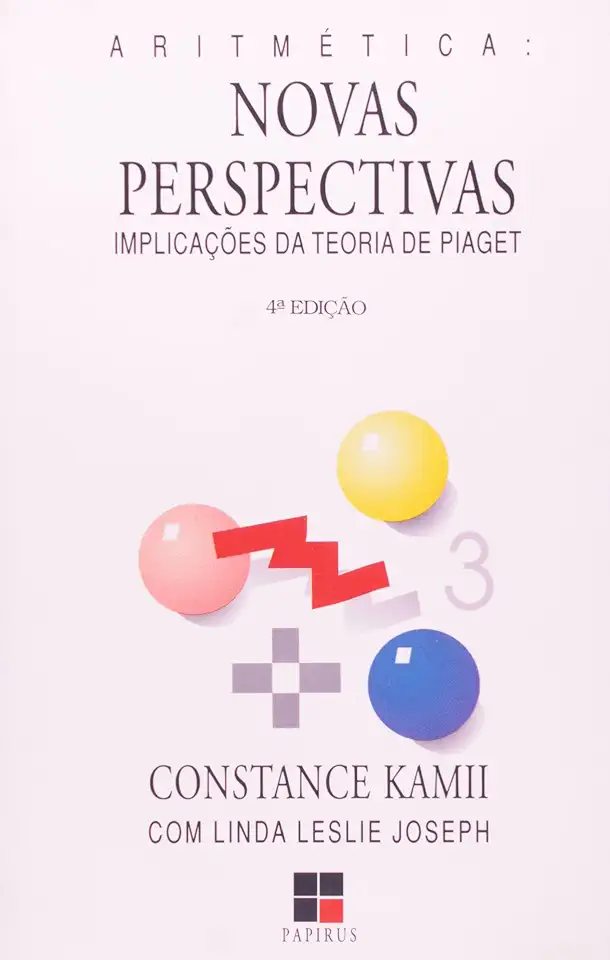
Arithmetic: Implications of Piaget's Theory - Constance Kamii
Arithmetic: Implications of Piaget's Theory by Constance Kamii
A Comprehensive Exploration of Piaget's Theory and Its Impact on Arithmetic Education
In her groundbreaking book, "Arithmetic: Implications of Piaget's Theory," renowned educator and researcher Constance Kamii delves into the profound implications of Jean Piaget's constructivist theory on the teaching and learning of arithmetic. With meticulous research and insightful analysis, Kamii presents a compelling case for transforming arithmetic education by aligning it with the natural developmental stages of children's cognitive development.
Unveiling the Power of Constructivism in Arithmetic Education
Piaget's constructivist theory revolutionized our understanding of how children learn. Kamii masterfully translates this theory into practical implications for arithmetic education, demonstrating how children actively construct their mathematical knowledge through hands-on experiences and interactions with their environment. By embracing constructivism, educators can create learning environments that foster deep understanding, problem-solving skills, and a genuine love for mathematics.
Piaget's Stages of Cognitive Development and Arithmetic Learning
Kamii meticulously examines Piaget's stages of cognitive development and their direct relevance to arithmetic learning. She explains how children progress from sensorimotor to preoperational, concrete operational, and formal operational stages, and how each stage presents unique opportunities and challenges for teaching arithmetic. By understanding these developmental stages, educators can tailor their teaching methods to match children's cognitive abilities, ensuring effective and meaningful learning.
Concrete Materials: The Key to Unlocking Mathematical Understanding
Kamii emphasizes the crucial role of concrete materials in facilitating children's understanding of abstract mathematical concepts. She provides detailed examples of how manipulatives, such as Cuisenaire rods, pattern blocks, and geoboards, can help children visualize and explore mathematical relationships. By engaging with concrete materials, children develop a solid foundation for abstract reasoning and problem-solving.
Promoting Mathematical Thinking and Problem-Solving
Kamii goes beyond rote memorization and procedural skills, emphasizing the importance of fostering mathematical thinking and problem-solving abilities. She offers practical strategies for encouraging children to explore, experiment, and make conjectures, nurturing their natural curiosity and developing their mathematical creativity.
Assessment: A Tool for Empowering Learning
Kamii highlights the significance of assessment as a tool for informing instruction and empowering learning. She advocates for ongoing assessment that focuses on children's thinking processes rather than solely on their answers. By understanding children's strengths and areas for improvement, educators can provide targeted support and ensure that every child reaches their full potential.
A Must-Read for Educators, Researchers, and Parents
"Arithmetic: Implications of Piaget's Theory" is an essential resource for educators, researchers, and parents who are passionate about improving arithmetic education. Kamii's groundbreaking work provides a wealth of insights, practical strategies, and thought-provoking ideas that can transform the way we teach and learn arithmetic. By embracing the principles of constructivism and incorporating concrete materials, educators can unlock the potential of every child and cultivate a lifelong love for mathematics.
Order Your Copy Today and Embark on a Transformative Journey in Arithmetic Education!
Don't miss this opportunity to revolutionize your approach to arithmetic education. Order your copy of "Arithmetic: Implications of Piaget's Theory" today and discover how Piaget's constructivist theory can empower children to become confident, competent, and enthusiastic mathematicians.